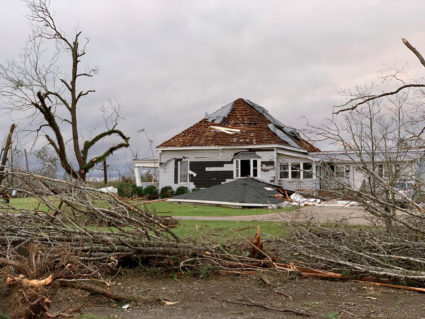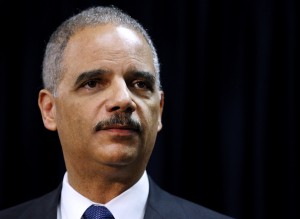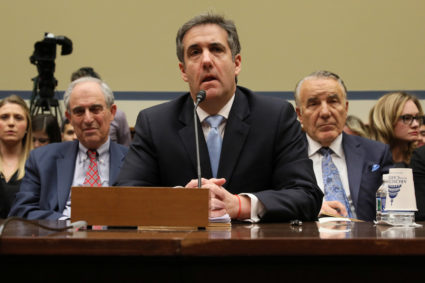A class of antibiotics called quinolones is raising concerns after some patients report becoming very ill after taking them. Health correspondent Betty Ann Bowser reports.
Read the Full Transcript
-
JUDY WOODRUFF:
Next, a Health Unit report about a medical mystery, and the questions it's raising about the drug-monitoring system. It involves a class of antibiotic drugs that some people say are making them very ill.
Health correspondent Betty Ann Bowser has the story.
-
BETTY ANN BOWSER:
Just a few years ago, Jenne Wilcox was a happily married healthy first-grade teacher in Oroville, Calif., helping husband Rob raise his son Cole from a previous marriage.
But all that changed suddenly after she took a prescription drug called Levaquin to prevent infection following routine sinus surgery. Wilcox developed severe pain in her joints and muscles, and even when she stopped taking the medication, the symptoms grew worse, until she could no longer walk.
-
JENNE WILCOX, patient:
I couldn't even hold my head up. And I was bedridden for over a year. And when I say that, I mean, I couldn't even get myself out of bed to get into my wheelchair to go use the restroom. I had to be picked up out of bed.
-
BETTY ANN BOWSER:
Today, with the help of her husband, Wilcox struggles through at least three therapy sessions a week. Her neurologist continues to treat her for Levaquin toxicity.
The medical problems have also taken their toll on her quality of life. She became so disabled she had to give up her teaching job. And, without her income, the Wilcox family lost their home.
Levaquin is a powerful antibiotic in a class of drugs called fluoroquinolones, known more simply as quinolones. They are some of the most popular antibacterial drugs on the market today and are supposed to be used to treat serious bacterial infections.
Dr. David Flockhart heads the Department of Clinical Pharmacology at the Medical School of Indiana University.
DR. DAVID FLOCKHART, Indiana University School of Medicine: Well, I think you have to start any conversation about quinolones by saying they're very useful drugs. They're tremendously powerful antibiotics. They kill a wide range of pathogenic, dangerous bacteria. And they have saved many, many people's lives.
-
BETTY ANN BOWSER:
But Flockhart is among a group of doctors who also believes quinolones are overprescribed and may cause more damage to patients than mainstream medicine has previously acknowledged.
-
DR. DAVID FLOCKHART:
You don't use these big guns, if you like, for killing mosquitoes, for little limb infections. You should use them appropriately for big infections that they're useful for.
-
JOHN FRATTI, patient:
I try and take medication with food so it doesn't give me nausea.
-
BETTY ANN BOWSER:
Forty-six-year-old John Fratti of Hummelstown, Pa., was prescribed Levaquin a few years ago for a minor bacterial infection.
-
JOHN FRATTI:
It caused nerve damage, tendon damage and central nervous system damage. Central nervous system damage is — is brain damage.
-
BETTY ANN BOWSER:
Before taking Levaquin, Fratti had no major medical problems. But after taking the drug he became disabled.
-
JOHN FRATTI:
I have lost my job. I have lost over a quarter of a million dollars in lost wages. I have spent about $30,000 out of my own pocket in medical and insurance costs, haven't received a dime back for this.
-
BETTY ANN BOWSER:
Fratti and Wilcox are part of a growing network of websites where thousands of people have reported adverse reactions to quinolone drugs. Many said doctors prescribed the drugs for minor sinus and urinary tract infections.
And while FDA believes only a small percentage of people who take quinolones have negative side effects, the scope of the problem is a mystery.
It's hard to know how many Americans are harmed by quinolones, or any prescription drug, for that matter, because the U.S. has no accurate way to track them. The Food and Drug Administration does have something called the Adverse Events Reporting System, or AERS, but even FDA says that picks up only about 10 percent, which means about 90 percent of all adverse drug reactions go unreported.
And an FDA advisory board report this month found there was universal agreement that the current AERS database is outdated and inadequate to the tasks of the agency. But even with that inadequate system, AERS picked up reports of 2,500 deaths linked to, but not necessarily caused by quinolones between 1997 and 2010. Another 45,000 negative side effects were picked up in the same time period.
And Dr. Flockhart says that means only a small number of adverse drug reactions ever get the attention of FDA.
-
DR. DAVID FLOCKHART:
Fundamentally, it's a voluntary thing. So, a doctor is placed in the unusual position of having to report an adverse reaction in a patient usually that he or she has prescribed the drug to. So, there is an inherent conflict.
-
BETTY ANN BOWSER:
Concern about the adverse side effects of quinolones got national attention some years ago, when Philadelphia writer Stephen Fried's wife became psychotic and developed seizures after taking just one pill.
STEPHEN FRIED, "Bitter Pills": It turns out that what is happening to her is — is a possible side effect of the drug that she took one pill of that morning. And so we were then launched into this mysterious, scary, fascinating, intellectually challenging, emotionally challenging world of adverse drug reactions, and looking for answers to her situation.
-
BETTY ANN BOWSER:
Five years of digging led Fried to write the book "Bitter Pills" that was a bestseller.
-
STEPHEN FRIED:
I think that it's fairly clear that adverse drug reactions have been considered for some time to be the fourth leading cause of death in America. I think it's an accurate number. And so the number has always been bandied about between 100,000 and 200,000 a year.
-
BETTY ANN BOWSER:
Fried's book, along with the group Public Citizen, were instrumental in getting the FDA to put a first black box warning on quinolones four years ago for potential tendon damage.
A black box warning is the most serious action FDA can take, short of pulling a drug from the market. In March, the FDA added a second black box warning indicating for the first time that quinolones may have neuromuscular blocking activity.
-
DR. RAY WOOSLEY, Critical Path Institute:
Anybody see drug medicines up there that they recognize?
-
BETTY ANN BOWSER:
But Ray Woosley, a pharmacologist and internist who heads the nonprofit Critical Path Institute in Tucson, says consumers usually are unaware of these warnings.
-
DR. RAY WOOSLEY:
The black box warning is actually intended for prescribers. The patient guides that are required for some medications are worded at the layperson level. And it's two totally different types of information. And, many times, the serious warnings that the doctor is informed of may not be in the patient information.
-
BETTY ANN BOWSER:
Woosley also says, like most drugs, quinolones went on the market without regulators knowing enough about their adverse effects on the general population.
-
DR. RAY WOOSLEY:
They only study a few thousand people with a very discrete and defined problem. But then it goes on the market and it's given to a lot of other people who weren't studied. And these are very potent medicines. And potent medicines have potent harm.
So, the problem with the fluoroquinolones is that they're so effective, that they're given without — in ways that weren't studied.
-
BETTY ANN BOWSER:
The FDA refused our requests for an on-camera interview about quinolones, but did say for the record that it has found no common thread of negative evidence that would lead the agency to remove quinolones from the market.
And Ortho-McNeil, the pharmaceutical company that makes Levaquin, says the drug is safe when used as directed. In a written statement provided to the NewsHour, the company said, "We believe strongly in and proactively support the appropriate prescribing of fluoroquinolones."
Dr. Woosley says the only way to settle a drug safety issue like quinolones is for the U.S. to develop a reliable system to accurately track adverse drug reactions.
-
DR. RAY WOOSLEY:
As a nation, we don't have a fair and effective system that serves the drug industry or the patients or the caregivers.
Everyone is suffering in some way because of our lack of investment in the safe use of medicines. You can go on the Internet and you can print out a list of all the companies and how many suitcases the airlines have lost each month for over a decade. But I can't go anywhere and tell you how many people were harmed.
-
BETTY ANN BOWSER:
Over the past two years, Jenne Wilcox's medical condition has improved, but her doctors are unable to say if she will ever fully recover.
John Fratti has gone to work part-time for the FDA as a patient advocate working to increase public knowledge about the dangers of quinolone drugs.
Meanwhile, FDA officials say they are working hard to develop new, more accurate methods of tracking drugs and their effects on the millions of Americans who take them each year.




























What do you think? Leave a respectful comment.